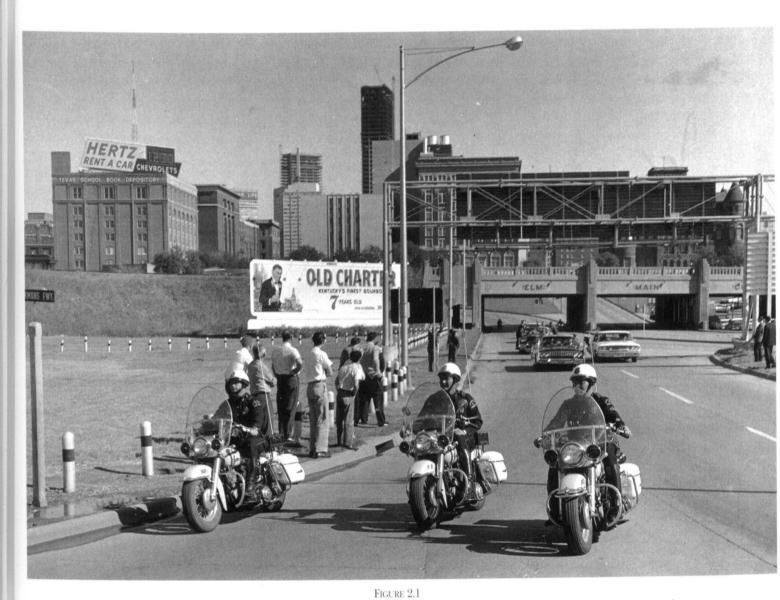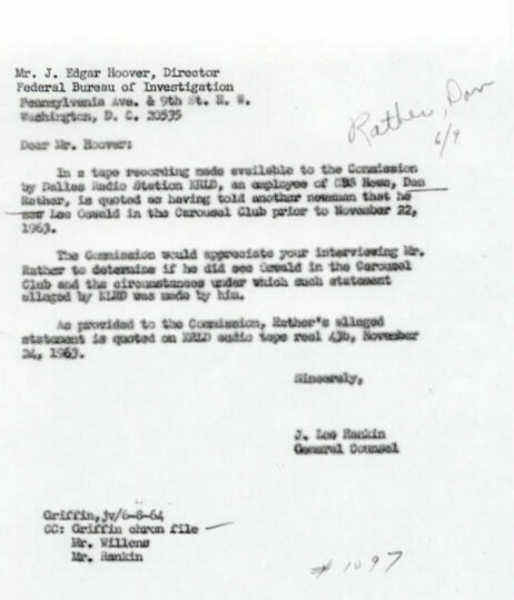Dan Rather Leaves CBS After 44 Years
[Sorry, the video for this story has expired, but you can still read the transcript below. ]
TRANSCRIPT
JEFFREY BROWN: Dan Rather was once the face of CBS News. He logged 44 years at the network, 24 in the anchor chair of the “Evening News.”
But the announcement today that the storied newsman was leaving was not a surprise. Rather hasn’t anchored the news since March of last year. He’s filed only occasional stories for “60 Minutes” this year and was last seen on the network last weekend on the program “Sunday Morning.”
Rather’s reputation suffered after a “60 Minutes” story about President Bush’s Vietnam-era service in the National Guard. That story relied on documents that ultimately could not be authenticated.
In early 2001, more than three years before the National Guard story aired, NewsHour correspondent Terence Smith interviewed Rather and asked him about his future.
TERENCE SMITH, Former NewsHour Correspondent: Dan Rather, he’s been in that chair 20 years, almost 20 years. How long does he want to be in it?
DAN RATHER, Former Host, “CBS Evening News”: For as long as I can do it and do it up to my own standards and the standards of CBS News.
You know, Terry, you and I worked together for a long time. I think you know me well enough that what I know and about all I know is to work hard, try hard, trust in hard work, determination, perseverance, and know that the best motto for the long pull is don’t grumble, just keep plugging away.
And that’s how I feel about this job. I love this job; I love everything about it. I want to do it for as long as my health holds and as long as I can meet our standards. The second either one of those things ceases to be, no one will have to ask me to be out of here.
Why is Rather leaving CBS?
JEFFREY BROWN: Rather is reportedly in talks with HDNet, a high-definition channel, about hosting a one-hour news program for the cable outlet. For the record, HDNet and the NewsHour have on occasion shared footage and resources.
For more on Dan Rather, we turn to Ken Auletta, staff writer for the New Yorker magazine.
Ken, what in the end led to Dan Rather's leaving the network?
KEN AULETTA, Columnist, The New Yorker: His contract was up at the end of this year, and they couldn't negotiate a new one. I mean, he basically was pushed out. He wanted to stay. He probably shouldn't have wanted to stay, since they had given a clear signal for a period of time they wanted him to go.
JEFFREY BROWN: He was appearing on "60 Minutes," but it looks like there was little room at the inn there with all their correspondents.
KEN AULETTA: He appeared very infrequently, I think a total of six times, which is not a lot compared to the other correspondents.
And, two, if you visited the "60 Minutes" office, one of the things that was quite stunning was to see that Dan Rather's office was the equivalent of a closet in a corner. And they made it clear to him that he was not going to be extended.
"Rather stayed too long"
JEFFREY BROWN: So it is a clean break, but as you suggest it doesn't look like a happy one. Rather issued a statement today saying the network, quote, "had not lived up to their obligation to allow me to do substantive work there."
KEN AULETTA: I mean, that's how he feels, and he was quite frank. I mean, the statement from CBS was, you know, saccharin and full of praise for Rather and talked about maybe doing a special this fall on his career. And it's been a long and distinguished career at CBS.
The truth of the matter is that, like, De Gaulle, Rather stayed too long. When he was pushed out of the anchor job, he should have seen the signs on the wall and just left with dignity. And now he leaves under a bit of a cloud, angry, allowing CBS to tarnish him and to push him out in a very unpleasant way.
JEFFREY BROWN: Well, the cloud, of course, comes from this National Guard report. The network today seemed to go out of its way to say that today's news was not connected to that, but clearly that sort of started this ball rolling, right?
KEN AULETTA: Yes, Dan Rather in the election, last election, allowed a "60 Minutes" piece to appear, where he was the prime reporter, though he didn't do enough reporting on that -- and it was one of the criticisms in the CBS report of his work -- but they not only made a mistake of authenticating documents that could not be authenticated later on, but then waited 10 days to acknowledge their mistake.
And that cloud cast by that action of Dan Rather and by his producer, Mary Mapes, and some others, which led to the firing of Mapes and some others, but also led inevitably to Rather being pushed out as anchor, something they probably were going to do anyway, because for 10 years Dan Rather was in third place and stalled there and didn't seem like he was moving in the evening news race, so they were going to make a change anyway.
He was 73 years old at the time. That was inevitable. But I think Rather, instead of seeing that it was inevitable and seeing that his welcome mat at CBS had expired, just tried to hang on. And he shouldn't have.
He gave his soul to the job
JEFFREY BROWN: You and I talked recently about the coming of Katie Couric. Now, it must be tough when you have the going of someone who has been the public face, particularly on television -- and as you said back then, these are people who come into our living rooms for years and years and are very famous, well-known people. So the going is not easy, right?
KEN AULETTA: No, it's not easy. You know, here's a man who gave his soul, his body for CBS, who worked hard, loved it, loved CBS, cried. His eyes got all misty in talking about the Murrow tradition, quite sincerely, by the way.
And yet here he is today, after years of being the face of CBS, and after years of being more famous than most movie stars are -- you walk through an airport with a Dan Rather or Tom Brokaw or the late Peter Jennings, they were recognized by many more people than, say, Tom Cruise would be, in part because they're in 10 million people's homes every night in their living rooms talking about issues that people care about.
They're not someone you visit in a movie theater once and maybe a total of five or six million people see that movie. So he's really -- he was a major figure in our lives. And it's kind of sad to see it end with such a lack of dignity, frankly, on CBS's part.
JEFFREY BROWN: And about that career, I mean, he always presented himself first as a reporter, a reporter rushing into the field, and then anchorman. Tell us about that.
KEN AULETTA: Well, I think Dan actually rather always had a dichotomy in his mind. And, in fact, the anchors do. He saw himself as a reporter who started with Hurricane Carla and then Kennedy assassination, civil rights in the '60s, Vietnam, London, stories all over the world, Afghanistan. And yet an anchor is essentially, except in times of crisis, is mostly a news reader.
A long and complicated career
JEFFREY BROWN: And what about this possible move to HDNet? Tell us first what that is. And why would Rather be interested?
KEN AULETTA: Well, it's digital high-definition television. It has about -- it reaches about potentially two or three million people today. It doesn't actually reach two or three million people. It probably reaches, you know, in the tens of thousands of people at most right now.
But it's new media. It's using the Internet; it's using digital technology. It allows you to put this stuff, not just on your television set, but on your handheld devices, as well, or your computer screen.
And Rather, at 74, finds it attractive to be in business with Mark Cuban, who owns HDNet, who's a very entrepreneurial executive and made his billions in the Internet world, and now owns, among other things, the Dallas Mavericks, but it's a way of Rather feeling young and vital and energized. And he's still got, despite his 74 years, he's got a lot of energy.
JEFFREY BROWN: Ken, you wrote a piece in the New Yorker last year entitled "The Long and Complicated Career of Dan Rather." Want to briefly sum it up for us?
KEN AULETTA: Well, I mean, Rather is a guy who made his mark covering hurricanes and he was noticed by CBS. And then he went out and he threw his body at stories all over the world, be it a tsunami, or be it Afghanistan, or be it Vietnam, or civil rights, or Kennedy's assassination.
He was a hard-working, diligent man, a man of great sincerity, a man often of great courage, not just physical courage, but the courage to stand up to his bosses at CBS and say, "No, no, no, guys, what you're doing is not in the Murrow tradition."
But he was also a compromise man, a man who sat at that desk reading news and sometimes kept quiet, kept his $8 or $9 million salary while other people got their jobs cut and lost.
So, like a lot of people, you make this Faustian bargain. You are very famous; you are very successful; you do sometimes very brilliant work. And it's very hard to be an anchor. But you also compromise with those people who sign your checks and do things that Dan Rather, to his credit, would sometimes denounce as saying, "I hate this circus. I hate the entertainment values that now permeate television news." But he had to do it, and he often did.
JEFFREY BROWN: All right, Ken Auletta of the New Yorker magazine, thanks a lot.
KEN AULETTA: My pleasure.















